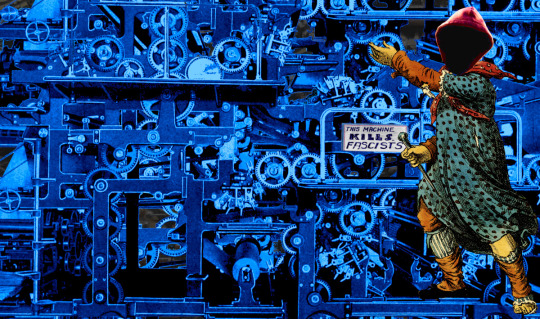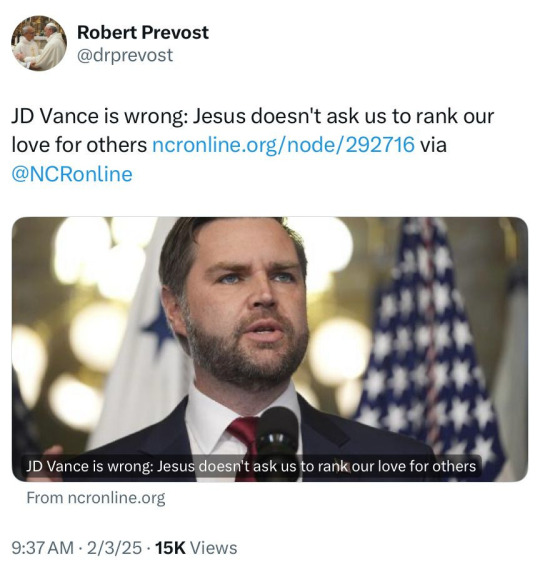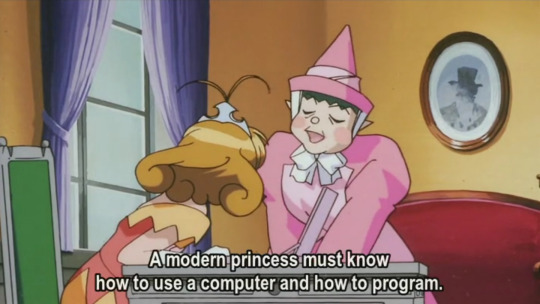You can call me Shafi. I did math in undergrad, but now I do cryptography with applications to bl*ckch**n.
Don't wanna be here? Send us removal request.
Text
Are the means of computation even seizable?

I'm on a 20+ city book tour for my new novel PICKS AND SHOVELS. Catch me in PITTSBURGH in TOMORROW (May 15) at WHITE WHALE BOOKS, and in PDX on Jun 20 at BARNES AND NOBLE with BUNNIE HUANG. More tour dates (London, Manchester) here.

Something's very different in tech. Once upon a time, every bad choice by tech companies – taking away features, locking out mods or plugins, nerfing the API – was countered, nearly instantaneously, by someone writing a program that overrode that choice.
Bad clients would be muscled aside by third-party clients. Locked bootloaders would be hacked and replaced. Code that confirmed you were using OEM parts, consumables or adapters would be found and nuked from orbit. Weak APIs would be replaced with muscular, unofficial APIs built out of unstoppable scrapers running on headless machines in some data-center. Every time some tech company erected a 10-foot enshittifying fence, someone would show up with an 11-foot disenshittifying ladder.
Those 11-foot ladders represented the power of interoperability, the inescapable bounty of the Turing-complete, universal von Neumann machine, which, by definition, is capable of running every valid program. Specifically, they represented the power of adversarial interoperability – when someone modifies a technology against its manufacturer's wishes. Adversarial interoperability is the origin story of today's tech giants, from Microsoft to Apple to Google:
https://www.eff.org/deeplinks/2019/10/adversarial-interoperability
But adversarial interop has been in steady decline for the past quarter-century. These big companies moved fast and broke things, but no one is returning the favor. If you ask the companies what changed, they'll just smirk and say that they're better at security than the incumbents they disrupted. The reason no one's hacked up a third-party iOS App Store is that Apple's security team is just so fucking 1337 that no one can break their shit.
I think this is nonsense. I think that what's really going on is that we've made it possible for companies to design their technologies in such a way that any attempt at adversarial interop is illegal.
"Anticircumvention" laws like Section 1201 of the 1998 Digital Millennium Copyright Act make bypassing any kind of digital lock (AKA "Digital Rights Management" or "DRM") very illegal. Under DMCA, just talking about how to remove a digital lock can land you in prison for 5 years. I tell the story of this law's passage in "Understood: Who Broke the Internet," my new podcast series for the CBC:
https://pluralistic.net/2025/05/08/who-broke-the-internet/#bruce-lehman
For a quarter century, tech companies have aggressively lobbied and litigated to expand the scope of anticircumvention laws. At the same time, companies have come up with a million ways to wrap their products in digital locks that are a crime to break.
Digital locks let Chamberlain, a garage-door opener monopolist block all third-party garage-door apps. Then, Chamberlain stuck ads in its app, so you have to watch an ad to open your garage-door:
https://pluralistic.net/2023/11/09/lead-me-not-into-temptation/#chamberlain
Digital locks let John Deere block third-party repair of its tractors:
https://pluralistic.net/2022/05/08/about-those-kill-switched-ukrainian-tractors/
And they let Apple block third-party repair of iPhones:
https://pluralistic.net/2022/05/22/apples-cement-overshoes/
These companies built 11-foot ladders to get over their competitors' 10-foot walls, and then they kicked the ladder away. Once they were secure atop their walls, they committed enshittifying sins their fallen adversaries could only dream of.
I've been campaigning to abolish anticircumvention laws for the past quarter-century, and I've noticed a curious pattern. Whenever these companies stand to lose their legal protections, they freak out and spend vast fortunes to keep those protections intact. That's weird, because it strongly implies that their locks don't work. A lock that works works, whether or not it's illegal to break that lock. The reason Signal encryption works is that it's working encryption. The legal status of breaking Signal's encryption has nothing to do with whether it works. If Signal's encryption was full of technical flaws but it was illegal to point those flaws out, you'd be crazy to trust Signal.
Signal does get involved in legal fights, of course, but the fights it gets into are ones that require Signal to introduce defects in its encryption – not fights over whether it is legal to disclose flaws in Signal or exploit them:
https://pluralistic.net/2023/03/05/theyre-still-trying-to-ban-cryptography/
But tech companies that rely on digital locks manifestly act like their locks don't work and they know it. When the tech and content giants bullied the W3C into building DRM into 2 billion users' browsers, they categorically rejected any proposal to limit their ability to destroy the lives of people who broke that DRM, even if it was only to add accessibility or privacy to video:
https://www.eff.org/deeplinks/2017/09/open-letter-w3c-director-ceo-team-and-membership
The thing is, if the lock works, you don't need the legal right to destroy the lives of people who find its flaws, because it works.
Do digital locks work? Can they work? I think the answer to both questions is a resounding no. The design theory of a digital lock is that I can provide you with an encrypted file that your computer has the keys to. Your computer will access those keys to decrypt or sign a file, but only under the circumstances that I have specified. Like, you can install an app when it comes from my app store, but not when it comes from a third party. Or you can play back a video in one kind of browser window, but not in another one. For this to work, your computer has to hide a cryptographic key from you, inside a device you own and control. As I pointed out more than a decade ago, this is a fool's errand:
https://memex.craphound.com/2012/01/10/lockdown-the-coming-war-on-general-purpose-computing/
After all, you or I might not have the knowledge and resources to uncover the keys' hiding place, but someone does. Maybe that someone is a person looking to go into business selling your customers the disenshittifying plugin that unfucks the thing you deliberately broke. Maybe it's a hacker-tinkerer, pursuing an intellectual challenge. Maybe it's a bored grad student with a free weekend, an electron-tunneling microscope, and a seminar full of undergrads looking for a project.
The point is that hiding secrets in devices that belong to your adversaries is very bad security practice. No matter how good a bank safe is, the bank keeps it in its vault – not in the bank-robber's basement workshop.
For a hiding-secrets-in-your-adversaries'-device plan to work, the manufacturer has to make zero mistakes. The adversary – a competitor, a tinkerer, a grad student – only has to find one mistake and exploit it. This is a bedrock of security theory: attackers have an inescapable advantage.
So I think that DRM doesn't work. I think DRM is a legal construct, not a technical one. I think DRM is a kind of magic Saran Wrap that manufacturers can wrap around their products, and, in so doing, make it a literal jailable offense to use those products in otherwise legal ways that their shareholders don't like. As Jay Freeman put it, using DRM creates a new law called "Felony Contempt of Business Model." It's a law that has never been passed by any legislature, but is nevertheless enforceable.
In the 25 years I've been fighting anticircumvention laws, I've spoken to many government officials from all over the world about the opportunity that repealing their anticircumvention laws represents. After all, Apple makes $100b/year by gouging app makers for 30 cents on ever dollar. Allow your domestic tech sector to sell the tools to jailbreak iPhones and install third party app stores, and you can convert Apple's $100b/year to a $100m/year business for one of your own companies, and the other $999,900,000,000 will be returned to the world's iPhone owners as a consumer surplus.
But every time I pitched this, I got the same answer: "The US Trade Representative forced us to pass this law, and threatened us with tariffs if we didn't pass it." Happy Liberation Day, people – every country in the world is now liberated from the only reason to keep this stupid-ass law on their books:
https://pluralistic.net/2025/01/15/beauty-eh/#its-the-only-war-the-yankees-lost-except-for-vietnam-and-also-the-alamo-and-the-bay-of-ham
In light of the Trump tariffs, I've been making the global rounds again, making the case for an anticircumvention repeal:
https://www.ft.com/content/b882f3a7-f8c9-4247-9662-3494eb37c30b
One of the questions I've been getting repeatedly from policy wonks, activists and officials is, "Is it even possible to jailbreak modern devices?" They want to know if companies like Apple, Tesla, Google, Microsoft, and John Deere have created unbreakable digital locks. Obviously, this is an important question, because if these locks are impregnable, then getting rid of the law won't deliver the promised benefits.
It's true that there aren't as many jailbreaks as we used to see. When a big project like Nextcloud – which is staffed up with extremely accomplished and skilled engineers – gets screwed over by Google's app store, they issue a press-release, not a patch:
https://arstechnica.com/gadgets/2025/05/nextcloud-accuses-google-of-big-tech-gatekeeping-over-android-app-permissions/
Perhaps that's because the tech staff at Nextcloud are no match for Google, not even with the attacker's advantage on their side.
But I don't think so. Here's why: we do still get jailbreaks and mods, but these almost exclusively come from anonymous tinkerers and hobbyists:
https://consumerrights.wiki/Mazda_DMCA_takedown_of_Open_Source_Home_Assistant_App
Or from pissed off teenagers:
https://www.theverge.com/2022/9/29/23378541/the-og-app-instagram-clone-pulled-from-app-store
These hacks are incredibly ambitious! How ambitious? How about a class break for every version of iOS as well as an unpatchable hardware attack on 8 years' worth of Apple bootloaders?
https://pluralistic.net/2020/05/25/mafia-logic/#sosumi
Now, maybe it's the case at all the world's best hackers are posting free code under pseudonyms. Maybe all the code wizards working for venture backed tech companies that stand to make millions through clever reverse engineering are just not as mad skilled as teenagers who want an ad-free Insta and that's why they've never replicated the feat.
Or maybe it's because teenagers and anonymous hackers are just about the only people willing to risk a $500,000 fine and 5-year prison sentence. In other words, maybe the thing that protects DRM is law, not code. After all, when Polish security researchers revealed the existence of secret digital locks that the train manufacturer Newag used to rip off train operators for millions of euros, Newag dragged them into court:
https://fsfe.org/news/2025/news-20250407-01.en.html
Tech companies are the most self-mythologizing industry on the planet, beating out even the pharma sector in boasting about their prowess and good corporate citizenship. They swear that they've made a functional digital lock…but they sure act like the only thing those locks do is let them sue people who reveal their workings.

If you'd like an essay-formatted version of this post to read or share, here's a link to it on pluralistic.net, my surveillance-free, ad-free, tracker-free blog:
https://pluralistic.net/2025/05/14/pregnable/#checkm8
429 notes
·
View notes
Text
There's a good chance he learned New Math prior to college, so he definitely knows some naive set theory and how things can be grounded in set-theoretical foundations. The question is whether he knows stuff besides the finite cardinals, alep _0, 2^aleph_0, et cetera
math major pope but math majors are a diverse bunch. he could know very little or quite a bit. we need answers. does he know group theory. sometimes you can get away with not knowing any group theory. plus it was the 70s. has he taken a topology class....probably not. but possibly. i wonder if the math curriclum of 70s villanova university is recorded anywhere. it could be lost to time. did any of your parents go to villanova for math in the 70s. do they still have their transcript. this could be big
775 notes
·
View notes
Text
Can't wait for the Pope's official stance on the smallest element of ℕ and the subsequent schism
492 notes
·
View notes
Text
math major pope but math majors are a diverse bunch. he could know very little or quite a bit. we need answers. does he know group theory. sometimes you can get away with not knowing any group theory. plus it was the 70s. has he taken a topology class....probably not. but possibly. i wonder if the math curriclum of 70s villanova university is recorded anywhere. it could be lost to time. did any of your parents go to villanova for math in the 70s. do they still have their transcript. this could be big
775 notes
·
View notes
Text
Boyfriend is in a hammock under the mulberry tree, occasionally getting pelted by falling mulberries. Excited to see what new theories this inspires.
3 notes
·
View notes
Text
math major pope but math majors are a diverse bunch. he could know very little or quite a bit. we need answers. does he know group theory. sometimes you can get away with not knowing any group theory. plus it was the 70s. has he taken a topology class....probably not. but possibly. i wonder if the math curriclum of 70s villanova university is recorded anywhere. it could be lost to time. did any of your parents go to villanova for math in the 70s. do they still have their transcript. this could be big
775 notes
·
View notes
Text
Several thoughts:


First American Pope AND he has a bachelor's degree in mathematics. That's cool.
Also:

HAHAHAHAH yes
420 notes
·
View notes
Text
genuinely wild to me when I go to someone's house and we watch TV or listen to music or something and there are ads. I haven't seen an ad in my home since 2005. what do you mean you haven't set up multiple layers of digital infrastructure to banish corporate messaging to oblivion before it manifests? listen, this is important. this is the 21st century version of carving sigils on the wall to deny entry to demons or wearing bells to ward off the Unseelie. come on give me your router admin password and I'll show you how to cast a protective spell of Get Thee Tae Fuck, Capital
67K notes
·
View notes
Text
It'd be so fucked up if function composition weren't associative.
72 notes
·
View notes
Text
gee, thanks for helping me solve my nondeterministic polynomial-time complete problem!
2K notes
·
View notes
Text

Rümeysa Öztürk was grabbed off the street in my town one month ago.
PhD Timeline [Explained]
Transcript
[A chart titled "U. S. P. H. D. Program Timeline", with arrows directing the various labelled stages and a block showing the percentage of Coursework to Research over time.] Meet with Advisor. Research Proposal. Qualifying Exams. Propose Dissertation. Research and Write Dissertation.
[The next stages, "Submit Dissertation" and "Defend Dissertation" have been crossed out in red, with new stages also written in red covering up the Coursework to Research block.] Get grabbed off the sidewalk outside your home by masked government agents. Be whisked out of the state before a judge has time to intervene. ???
7K notes
·
View notes
Text
No big deal, I just have to figure out all of Galois theory within the next 20 hours
666 notes
·
View notes
Text
The cool thing about doing math professionally is that you can work anywhere - on your walks, in the shower, as you fall asleep - just by rotating problems in your head. What's not so cool is that this drives you insane
2K notes
·
View notes
Text
i remember when i was a child internet safety was like "if you even hint at the country you live in, you're gonna get kidnapped and murdered", and nowadays it is encouraged or even necessary to give corporations every single personal detail if you want to use anything because if they can't sell your information they cry so hard they throw up
30K notes
·
View notes



